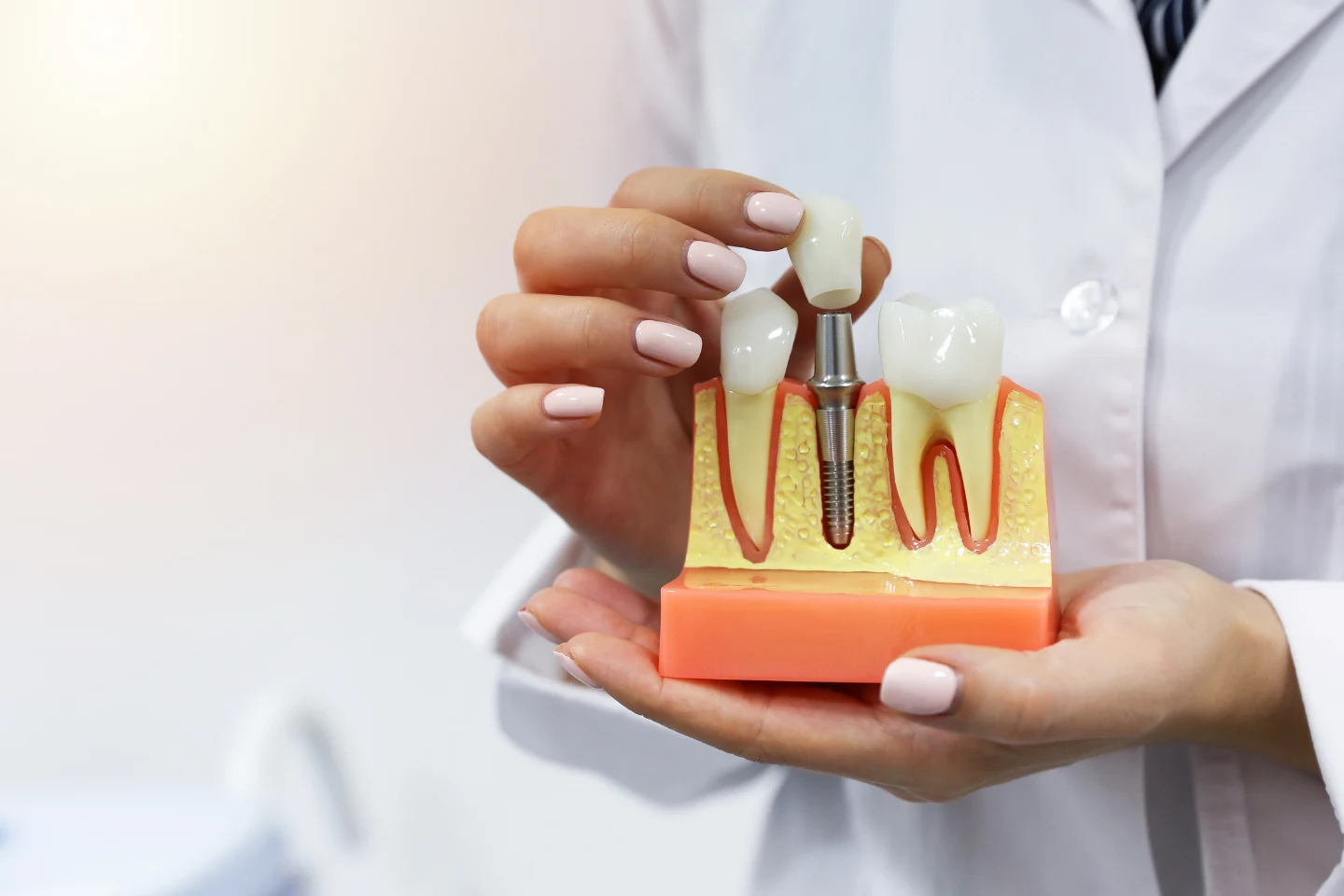What the Dental Implant Process Looks Like for Diabetic Patients
Here’s how we typically approach implant treatment at BOOM Smiles if you have diabetes:
1) Initial Evaluation and Consultation: We’ll review your medical history, assess your oral health, and discuss your current diabetes management plan. A blood test (HbA1c) may be requested to understand how well your blood sugar is controlled. If your diabetes is not well managed, we may work with your physician or ask you to stabilize your numbers before beginning treatment.
2) Advanced Imaging and Planning: Using 3D imaging and digital scans, we evaluate your bone volume and plan the exact placement of your dental implants. If you have any bone loss due to long-term tooth loss or gum disease, a bone graft may be recommended to rebuild the foundation before implant placement.
3) Implant Surgery: During surgery, we place the titanium implant(s) into your jawbone under local anesthesia. The healing process, or osseointegration, can take several months and may be slightly slower in diabetic patients. However, with stable glucose levels, healing is usually predictable.
4) Final Restoration: Once the implant has fused with the bone, we’ll attach a custom-made crown, bridge, or denture—restoring your full bite and smile.
5) Ongoing Care and Maintenance: This is where diabetic patients must stay especially vigilant. Routine checkups, cleanings, and excellent oral hygiene at home are crucial to keeping your implants—and your gums—healthy for life. Routine preventive care and excellent home hygiene are essential to maintaining implant and gum health.
Risks and How We Minimize Them
While the overall implant success rate is high, diabetic patients do face slightly higher risks of:
- Delayed healing
- Implant failure due to infection or poor bone integration
- Peri-implantitis (inflammation around the implant)
At BOOM Smiles, we reduce these risks by:
- Scheduling surgeries when your blood sugar is well-controlled
- Using minimally invasive techniques
- Providing detailed post-op instructions and monitoring your recovery
- Recommending antimicrobial rinses and professional cleanings
We’ll work with you every step of the way to ensure the safest, most successful outcome possible.
When Dental Implants May Not Be Ideal
In rare cases, if your diabetes is poorly controlled or you have other underlying conditions such as advanced heart disease, severe bone loss, or immune suppression, we may recommend alternative solutions such as:
- Removable partial dentures
- Implant-retained overdentures using fewer implants
- Stabilization treatments before attempting full implant placement
However, many patients who thought they weren’t candidates discover they actually are—once they’re evaluated in detail.
Tips for Diabetic Patients Considering Implants
If you’re living with diabetes and thinking about implants, here are a few ways to improve your chances of long-term success:
- Work with your physician to keep blood sugar stable
- Commit to excellent oral hygiene—brushing twice a day and flossing daily
- Avoid tobacco use, which increases implant failure risk
- Eat a balanced, nutrient-rich diet to support healing
- Visit your dentist regularly for monitoring and restorative dentistry
Dental implants are an investment, but with proper care, they can last decades and improve your quality of life dramatically.
Talk to a Dentist Who Understands Diabetes
You need more than just a skilled implant dentist—you need someone who understands the impact of diabetes on your entire mouth and body. At BOOM Smiles in Secaucus, we have the knowledge, experience, and personalized approach to safely guide diabetic patients through implant care.
We believe that everyone deserves to enjoy a confident, functional smile—regardless of their health history.
Schedule Your Implant Consultation at BOOM Smiles, Secaucus
If you’ve been told you’re not a candidate for dental implants because of diabetes, don’t give up hope. Many patients go on to have healthy, successful implant restorations with the right care and planning.
Call BOOM Smiles in Secaucus today to schedule your personalized consultation. Let’s explore your options, answer your questions, and start your journey to a stronger, healthier smile.


